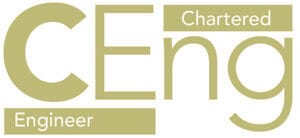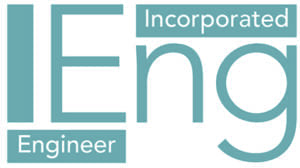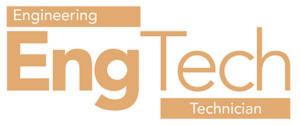Professional Status
Professionally registered status shows employers that you have and are committed to maintaining and enhancing the knowledge, skills and competence required to meet the engineering and technological needs of today. The titles available are explained below.

Chartered Engineer (CEng)
Chartered Engineers develop solutions to engineering problems using new or existing technologies, through innovation, creativity and change and/or they may have technical accountability for complex systems with significant levels of risk

Incorporated Engineer (IEng)
Incorporated Engineers maintain and manage applications of current and developing technology, and may undertake engineering design, development, manufacture, construction and operation

Engineering Technician (Eng Tech)
Engineering Technicians apply proven techniques and procedures to the solution of practical engineering problems
Registered Status
Route to Engineering Council registration for ICorr members in partnership with the Society of Operations Engineers (SOE)
Registration for Institute of Corrosion Professional Members takes place through the Registration Agreement with the Society of Operations Engineers, a Licensed Member of the Engineering Council (ECUK). This registration will confer the titles of Chartered Engineer (CEng), Incorporated Engineer (IEng) or Engineering Technician (EngTech) dependent upon the Candidate’s qualifications and experience.
Further information on Registration is provided in the Engineering Council’s UK-SPEC
How Does it Work?
A Candidate, who must be Professional Member of ICorr (i.e. TICorr, MICorr, or FICorr), applies to become registered by completing the appropriate form.
The form is then sent to the Secretary of the Engineering Council Registration Committee, Institute of Corrosion, Corrosion House, 5 St Peters Gardens, Marefair, Northampton, NN1 1SX, United Kingdom.
The Candidate’s Professional Membership status is confirmed and the form is then sent on to the EC Registration Coordinator where it is vetted for completeness, qualifications, etc. If not complete, further information will be requested from the Candidate. Satisfactory applications will be submitted to the next SOE Membership and Standards Committee (MSC) meeting who will review the application and advise the Candidate via ICorr of the most appropriate Registrant Grade and route for the Candidate.
ICorr will then process and assess the Candidate’s application, verified by SOE MSC, and the Candidate will then be requested to attend the Professional Review Interview (PRI).
If the Candidate is successful, he/she will be informed and will then be invoiced by ICorr for the ECUK one-off registration fee and annual registration fee. When received, SOE will add the name of the Candidate to the Register and inform ECUK. Should the application be unsuccessful, the Candidate will be informed.
Further information is available on the SOE website.
Call for Reviewers / Interviewers
ICorr would welcome any Professional Members who are already registered with ECUK through other societies and would be able and willing to assist with the Professional Review Interview. Please send your details and your corrosion specialisation to admin@icorr.org if you are able to help as ICorr will need to provide a suitable specialist to assist with the interview if SOE interviewers are not knowledgeable on specialist corrosion topics.
Mentoring
The Institute of Corrosion has interpreted the UK Spec standards and developed the professional competencies required for registration to Chartered Engineer status demonstrating the achievement of high-level education, the ability to practise the profession at a recognised level, and the maintenance and continued progression of engineering competencies.
We have established a mentoring program to support ICorr members in reaching the required competency levels in the field of corrosion engineering to obtain Chartered Engineer status.
The benefits to Engineers and Technicians are:
- Mentor guidance from an industry professional
- Competency assessment from a Chartered Engineer
- Development program via the competency matrix
Once a suitable Mentor is appointed and the Competency Matrix completed, a program is developed to assist the candidate towards the Chartered Status goal. This could include suggested training, site visits, conference involvement or assistance in the completion of the application and guidance prior to the PRI.
Already a Professional Member of ICorr?
For Engineers who are already Professional Members (MICorr) of the Institute, consider that they meet all the competency requirements as detailed in Engineering Council’s UKSPEC and wish to apply to be registered, please download the application form and guidance notes at the links above.
For graduate engineers continuing with their Initial Professional Development or experienced engineers wishing to obtain Chartership, ICorr has developed a mentoring scheme to help you ensure that you have the necessary education and experience to meet the competencies required for Chartership and provide guidance with competency assessment in the field of corrosion engineering as detailed below.
The process starts with the completion of a Competency Matrix which looks at the candidate’s ability in the four core technical competencies and scopes their ability against an expected minimum competency level for each professional level.
The competency levels are:
- Awareness
- Basic
- Skilful
- Masterly
- Expert
MICorr operating as a minimum at Basic to Skilful
CEng operating as a minimum at Skilful to Masterly
